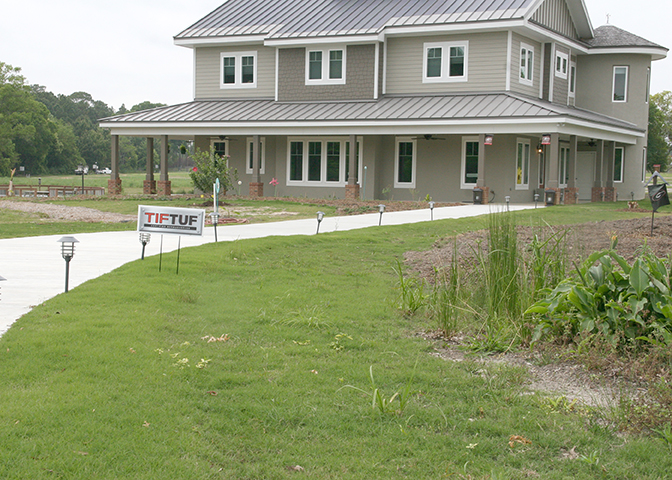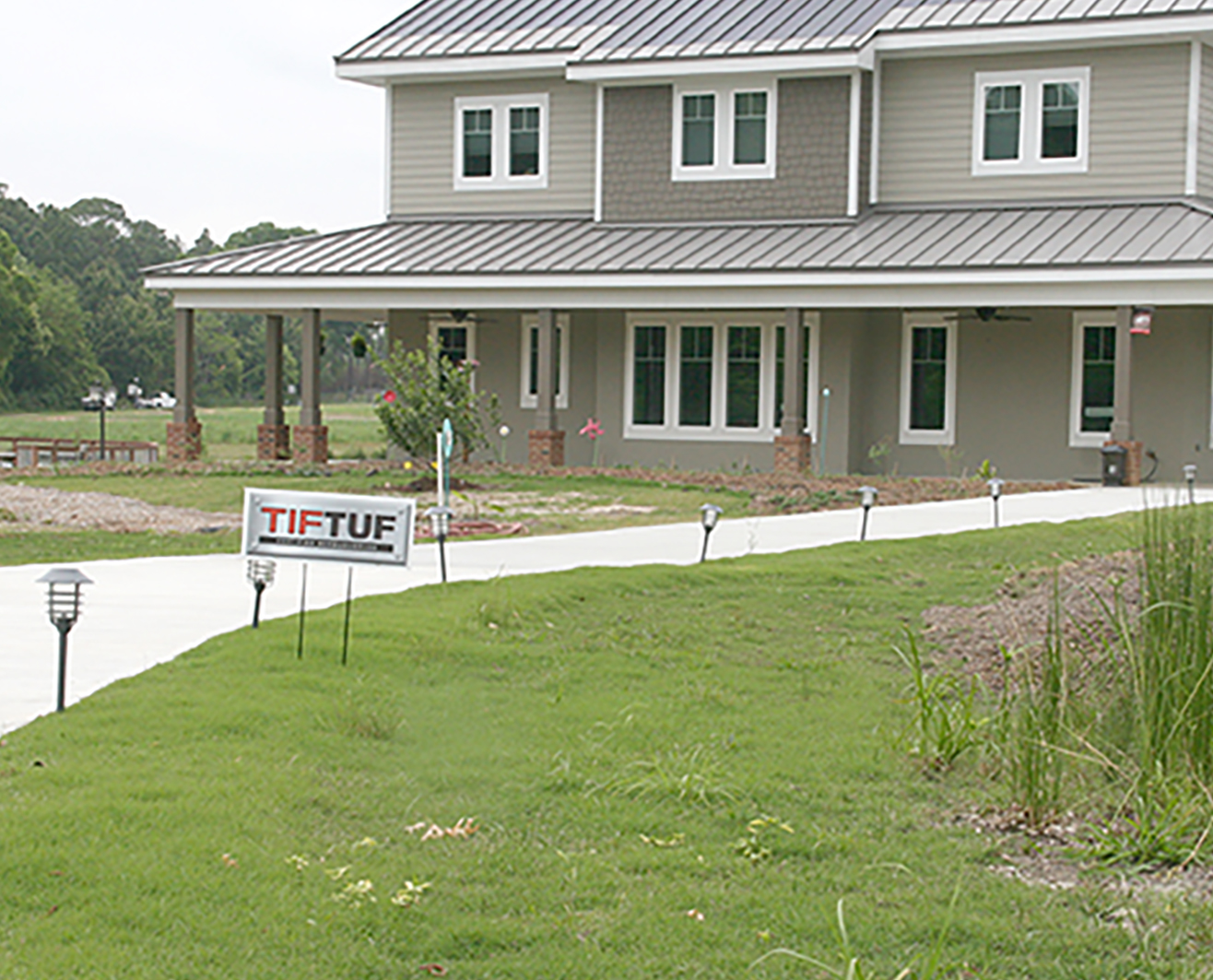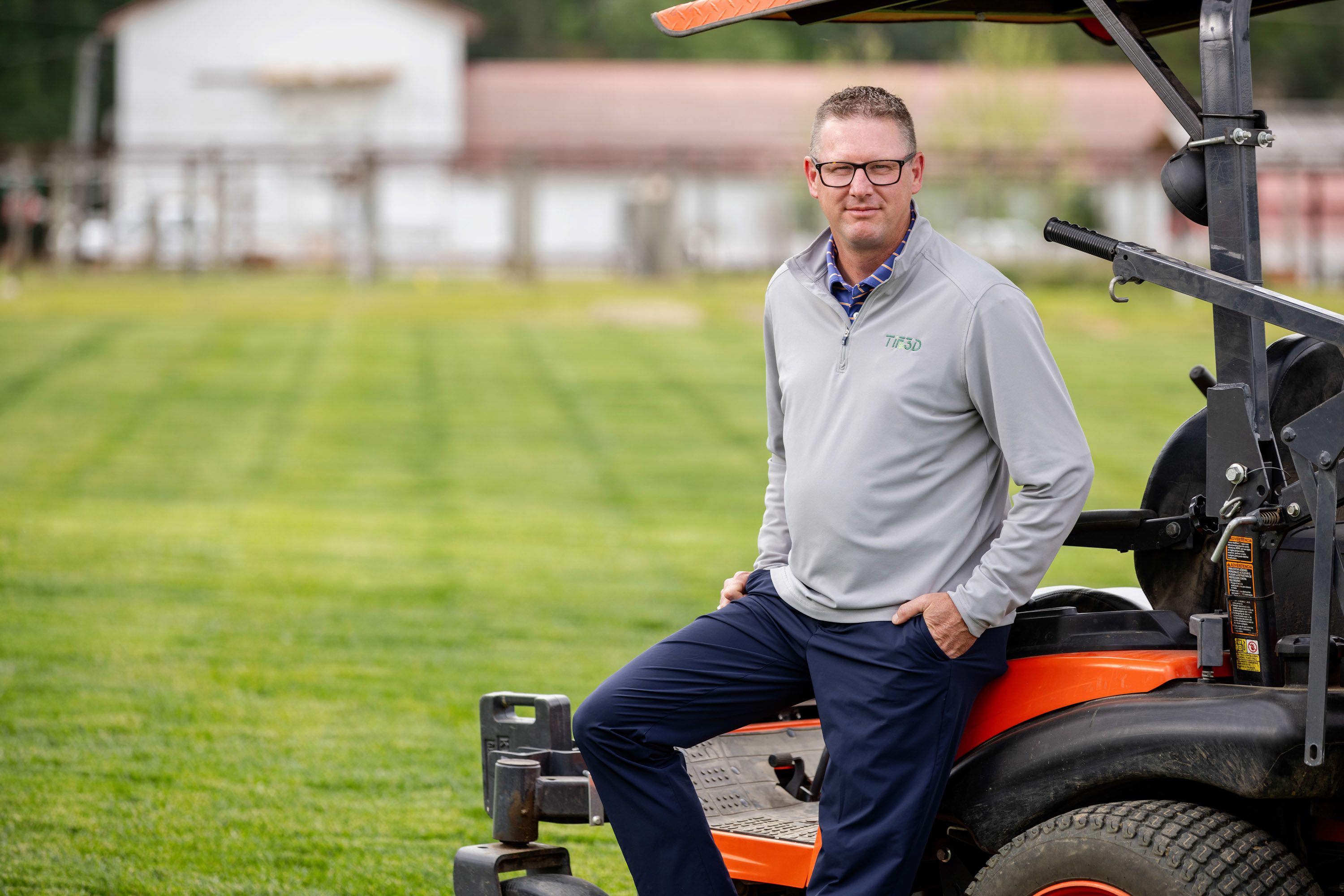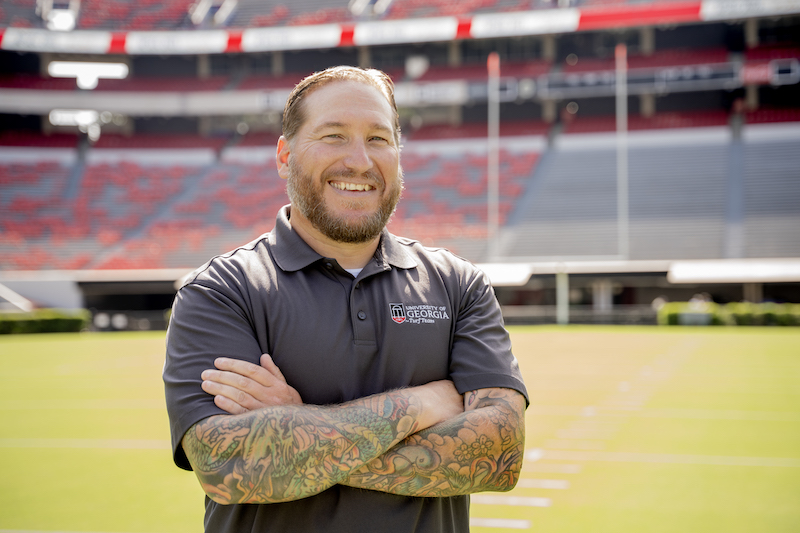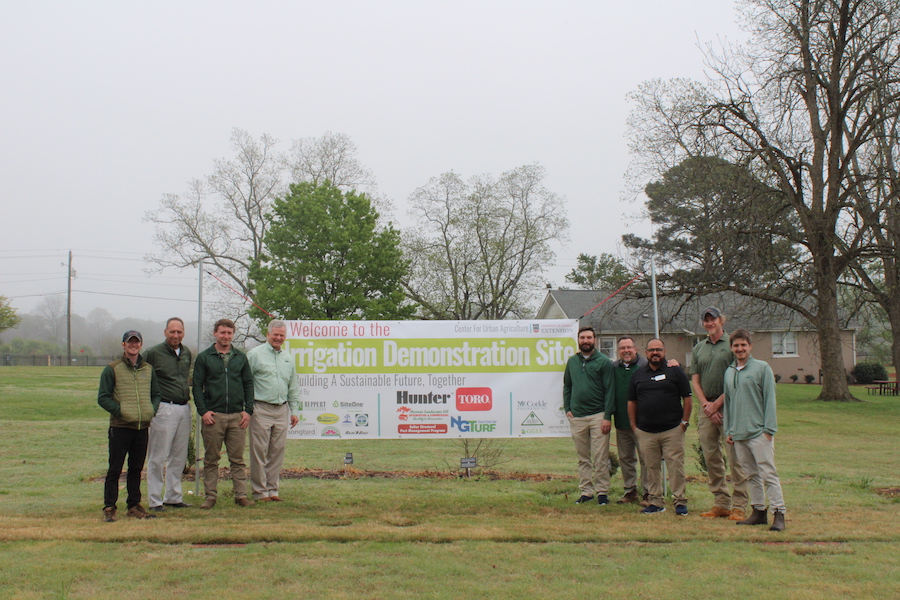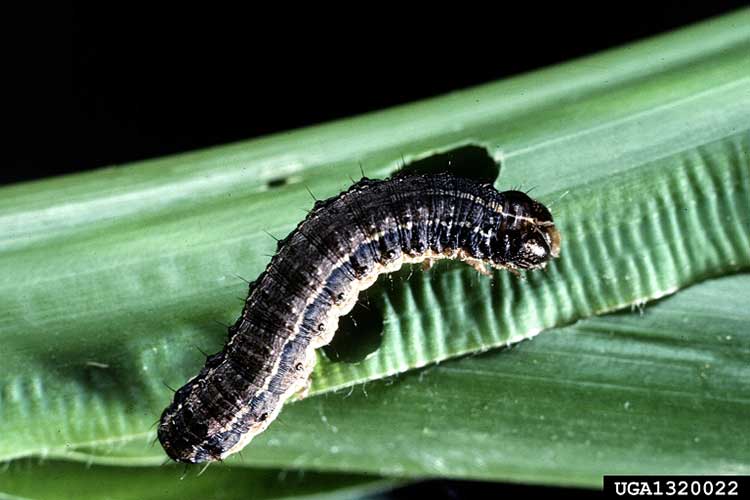The newest University of Georgia turfgrass release, TifTuf™ Bermuda grass, is now available to homeowners. TifTuf’s drought tolerance and shade tolerance make it one of the best choices for establishing a new lawn.
From Wayne Hanna and Brian Schwartz, UGA Tifton Campus turfgrass breeding program plant scientists, TifTuf is for homeowners who are serious about maintaining carpet-type coverage, which does not come cheap. Like all premium Bermuda lawn grasses, it must be established by sodding and is much more expensive than what one would pay to seed common Bermuda grass.
While other Bermuda grasses survive drought conditions by going dormant and then greening up at the first exposure to moisture, TifTuf stays green because it doesn't go dormant under drought stress. In UGA tests TifTuf uses 38 percent less water than Tifway Bermuda grass while maintaining better turf quality. Optimum water management, as with any grass, is dependent on the soil’s physical characteristics and climate. While the rule of thumb for watering most grass types is to provide 1 inch of water per week, TifTuf — in our area —simply doesn’t need to be irrigated once its roots are established in good soil, except in cases of extreme drought.
Other than drought, the most common problem seen with Bermuda grass lawns is stress brought on by too much shade. TifTuf thrives in light ranging from full sun to partial shade. While it certainly won’t grow in full shade, it is more shade tolerant than any of the other Bermuda grass varieties that have been used in our area.
A well maintained, vigorous TifTuf Bermuda grass lawn with good turf density will inhibit weed establishment. To be sure weeds are controlled, use of a pre-emergent herbicide is recommended in the spring and fall. When or if weeds become a problem, there are many choices of herbicide for specific weeds. Herbicide variety and availability for hybrid Bermuda grasses is enhanced by the fact that most athletic fields use this type of grass.
For more information on growing turfgrasses in Georgia, go to GeorgiaTurf.com.

